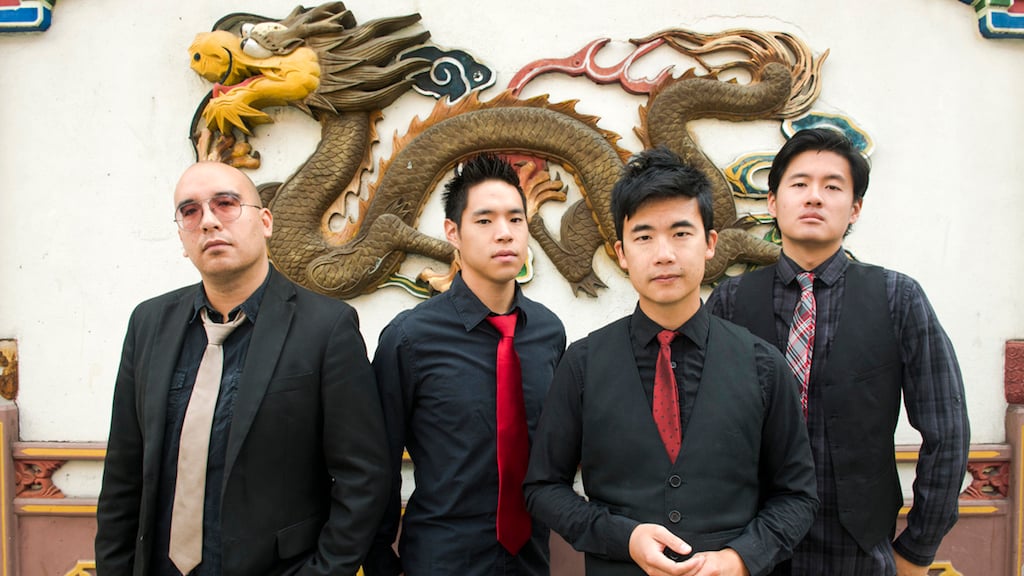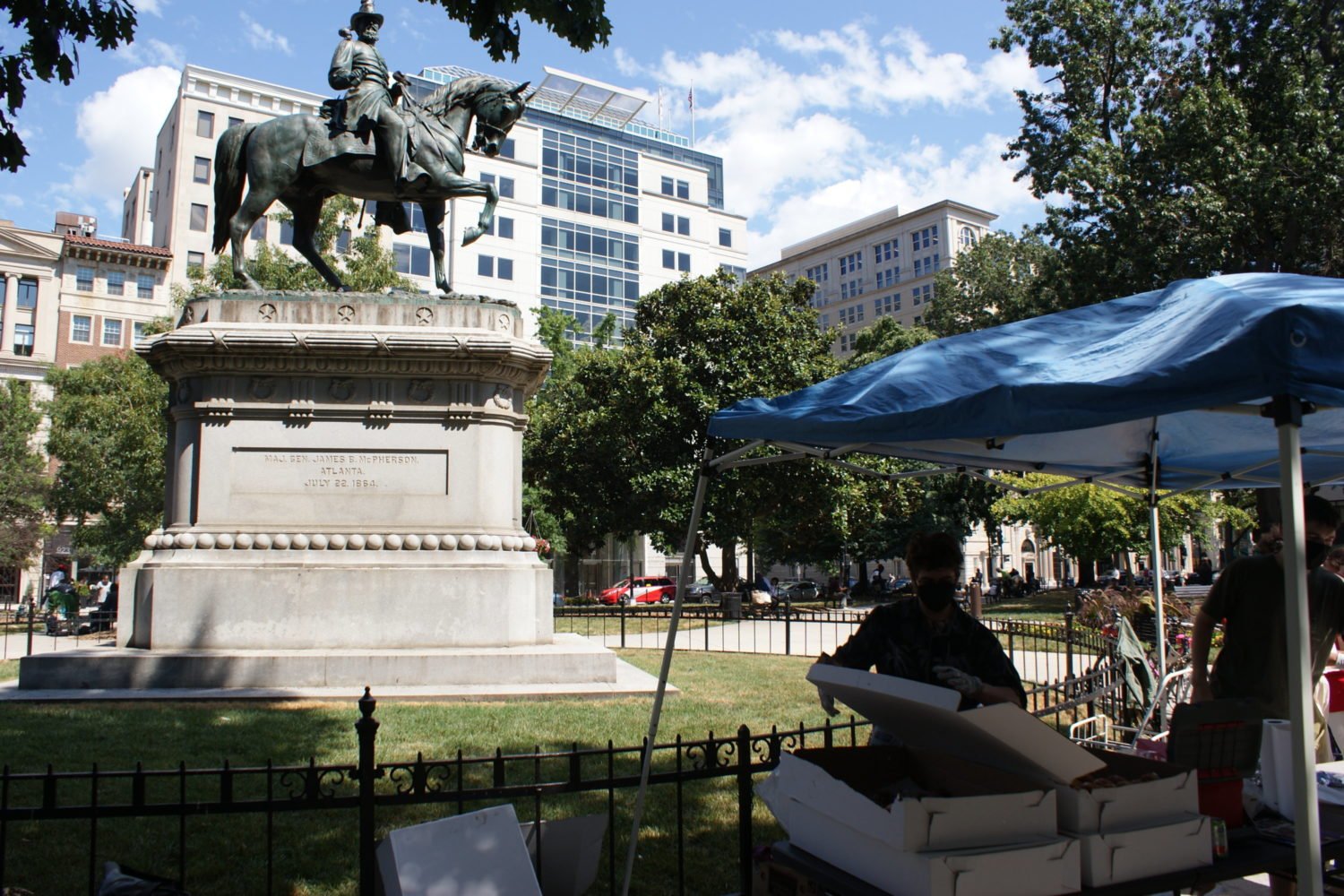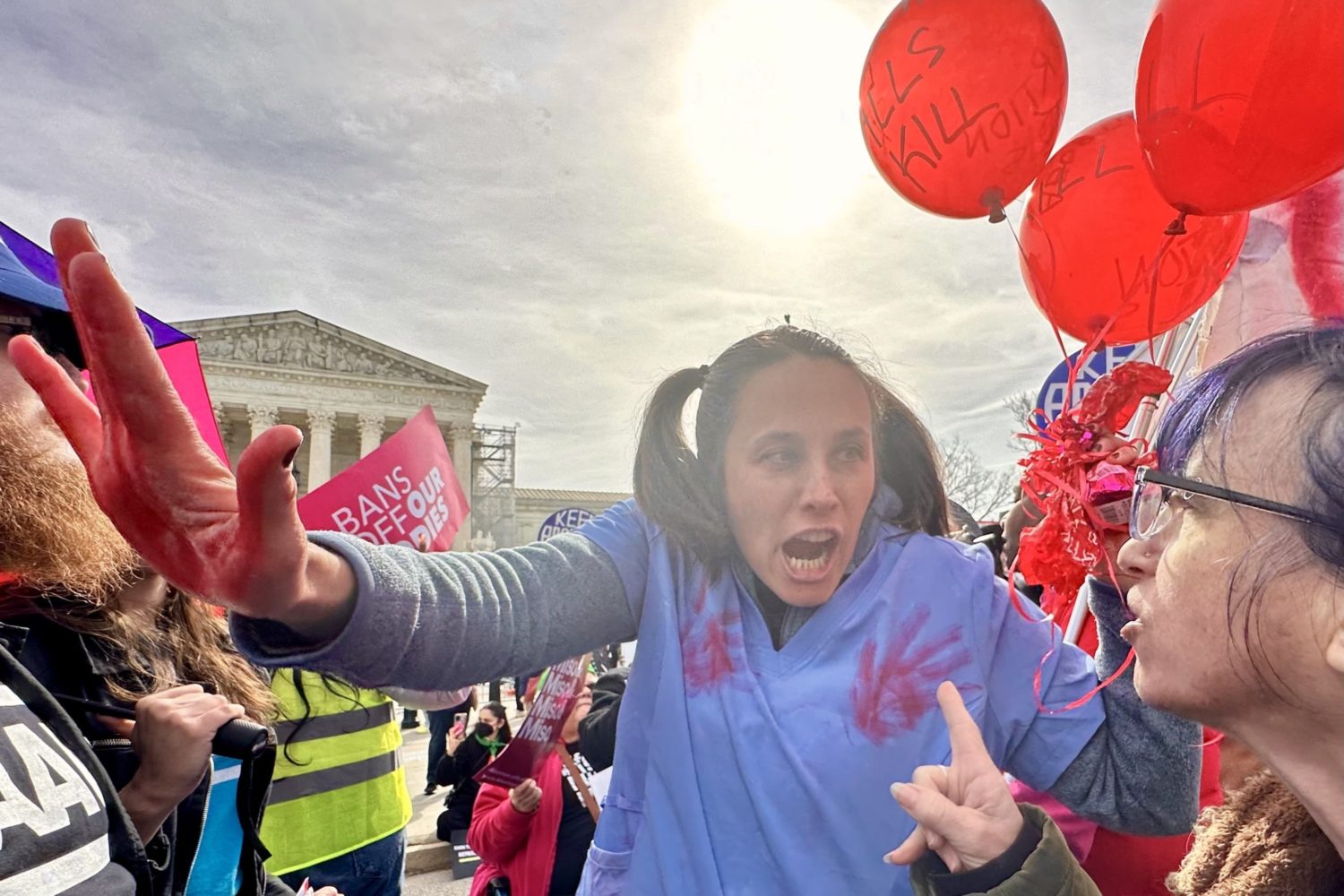In April, the Washington Redskins asked the Supreme Court to join their highly publicized trademark law suit with that of The Slants, an Asian American dance rock band embroiled in a very similar battle to protect their own contentious name.
This week, Simon Tam, founder of The Slants, asked the Supreme Court to do the same thing, despite having publicly distanced his band and their cause from the Redskins in the past. Washingtonian talked to Tam about his band, his mission, and his alliance with an organization he calls “racist”.
What made you decide to call your band The Slants? Were you trying to be controversial?
I decided on the band name before I even started the group, and I chose it for more than one meaning. For us, it has always been about our “slant” on life as people of color. Of course, it’s also a way for us to engage in conversations about reappropriation and identity and to pay homage to decades of work by Asian American activists who used “slant” in a self-empowering way.
I thought it was a clever reference to the slant guitar chords used in our music, though most people don’t catch that reference. The name wasn’t intended to be provocative. In fact, it’s never been much of a controversy at all outside of the Trademark Office. For years before we filed a trademark application, we were profiled in every Asian American media source in the country and toured Asian cultural festivals without a single formal complaint. We were actually awarded multiple times over the years from major Asian American organizations for our anti-racism work.
You said that what you’re doing is justified as reappropriation. That’s not what the Redskins are doing. Why ask the Supreme Court to hear your case along with theirs?
The legal brief addresses this extensively, but, basically, we’re not aligning ourselves with the racist football team. There’s certainly some overlap in our legal interests, and there are major differences. But clarity in the law won’t exist until the courts finally tackle the issue head on. That’s why.
On The Slants blog you’ve written a list of those differences between your name and the Redskins name, which the blog called a “slur.” It must have been a thorny decision to legally side with a cause you don’t agree with personally.
We shouldn’t let our fear of a football team re-gaining their trademark justify the suppression of rights for other groups. I think it’s possible to support free speech while opposing hate speech. And it is definitely possible to frame questions about free speech around the marginalized groups who need it instead of writing laws around one football team or one flag or one candidate.
If there’s genuine concern about the government supporting or protecting offensive content, then why is the moral line in the sand drawn at trademark registrations? Will these groups want copyright protection stripped from songs that contain potentially offensive content? Do they support the removal of books from public libraries? These institutions all bear the federal stamp of approval. Plus, unlike trademark registrations, those are actually funded by tax dollars.
I don’t think we should discourage people from using wit or irony or reappropriation just so we can also disarm malicious people. There should be a more culturally competent approach that doesn’t undermine the work of activists and artists who use reappropriation to encourage and educate people. But the debate on free speech has almost always focused on those who abuse it.
Regardless of what the Court decides, the government isn’t asking The Slants to change their name. It’s just refusing to register the trademark. Why is that such an important distinction? What will gaining the trademark prove?
This is about the principle. Musicians are unable to secure licensing deals if they can’t register their name, so the prevention of a trademark registration is an abridgment of free speech. Trademarks primarily affect small business owners and nonprofits, much more so than large football franchises.
Two polls actually have been done. The most extensive survey showed that an overwhelming majority of Asian Americans support our use of the name, which we submitted to the Trademark Office. Northwest Asian Weekly conducted another public poll, showing 98% supported our name. We also had one of the foremost linguistics experts in the country do a report on the history of the term “slant”.


















